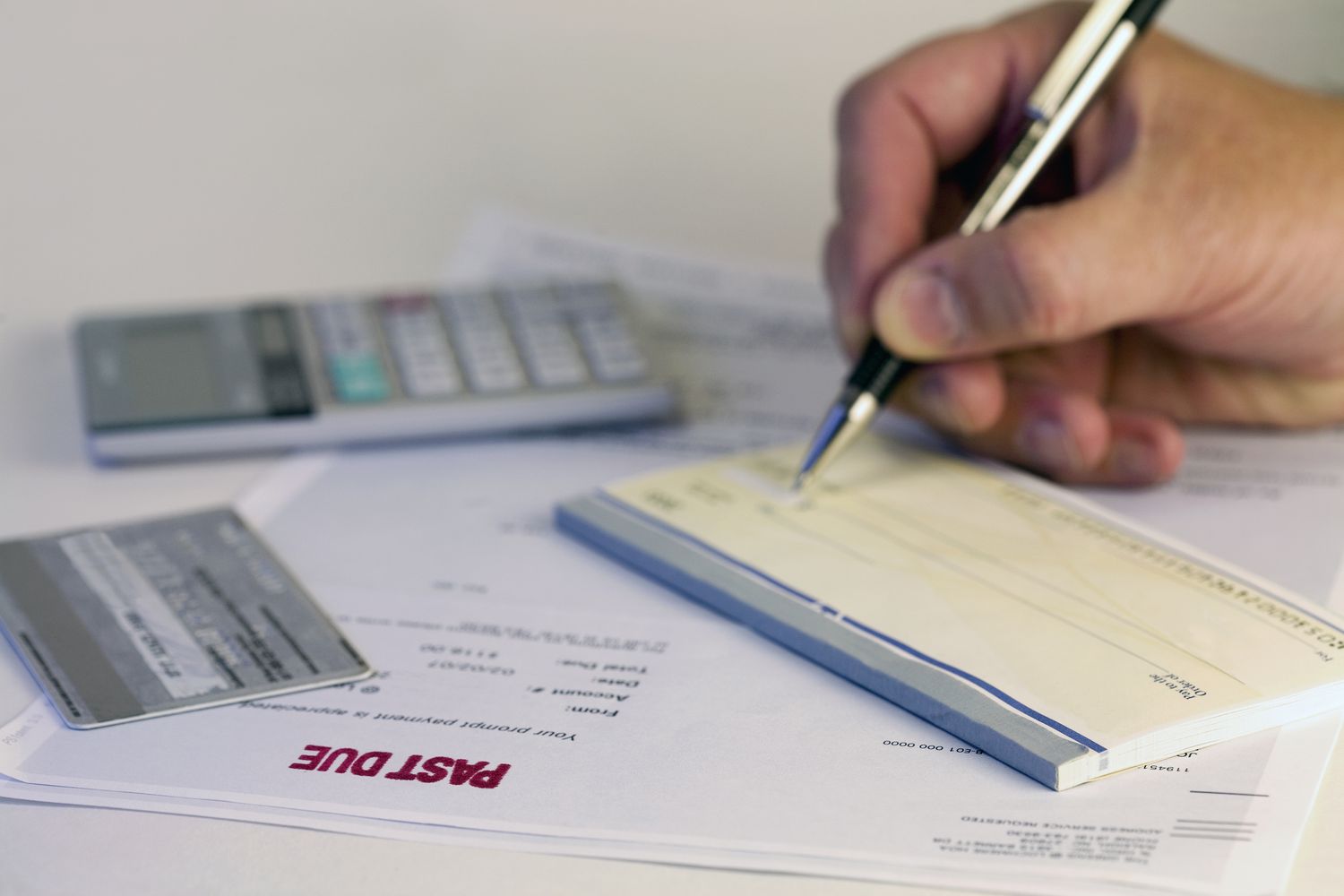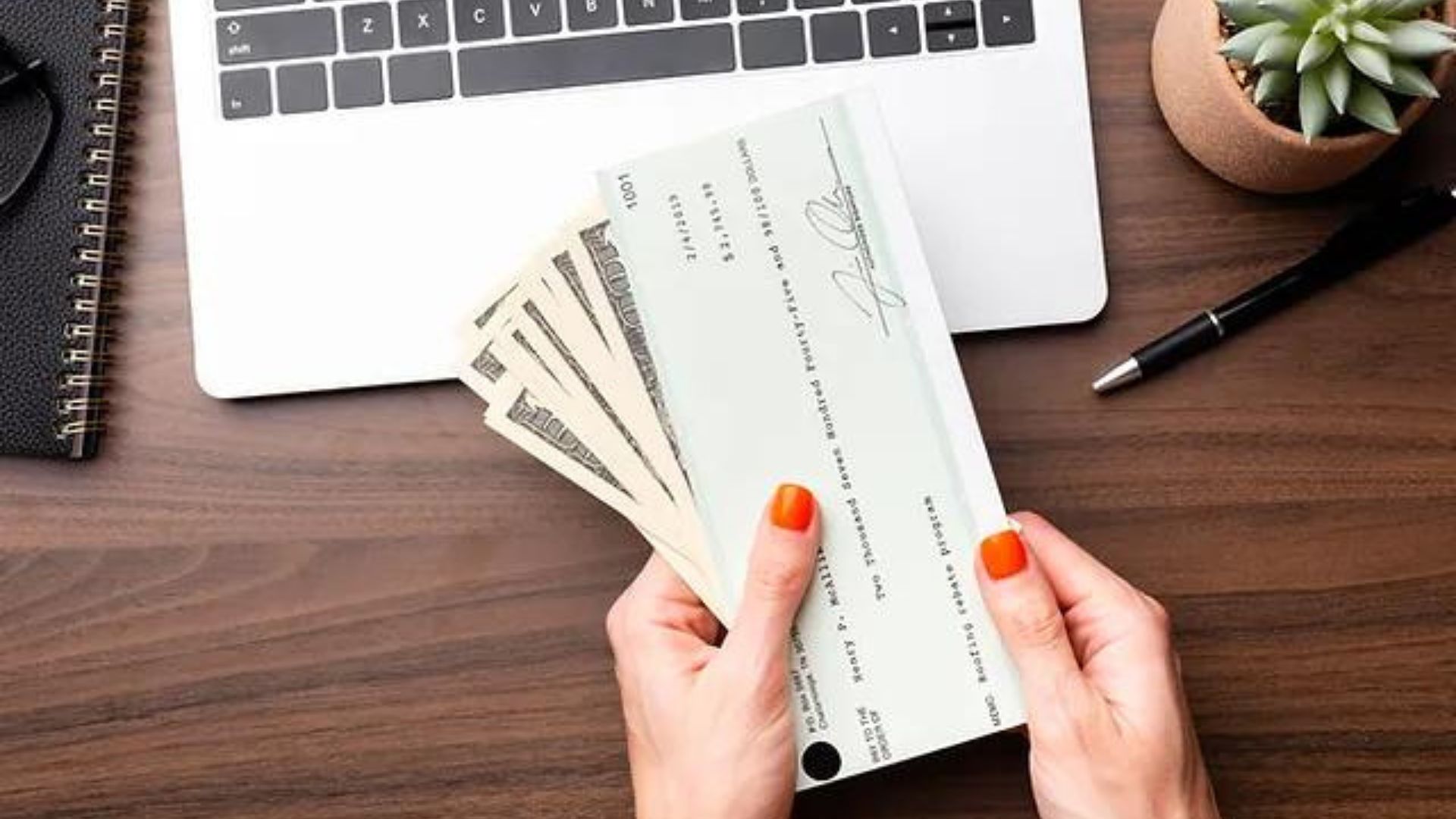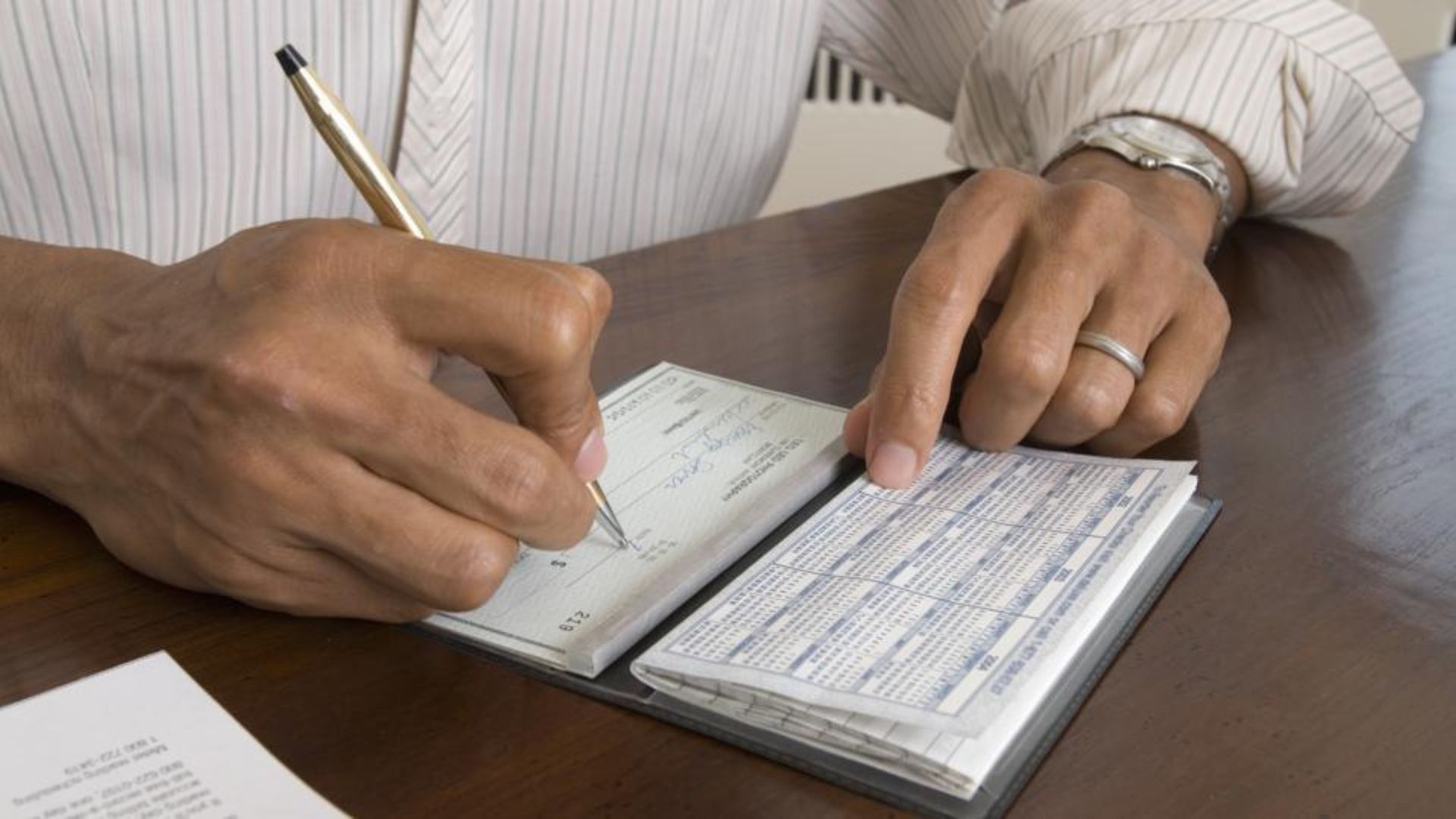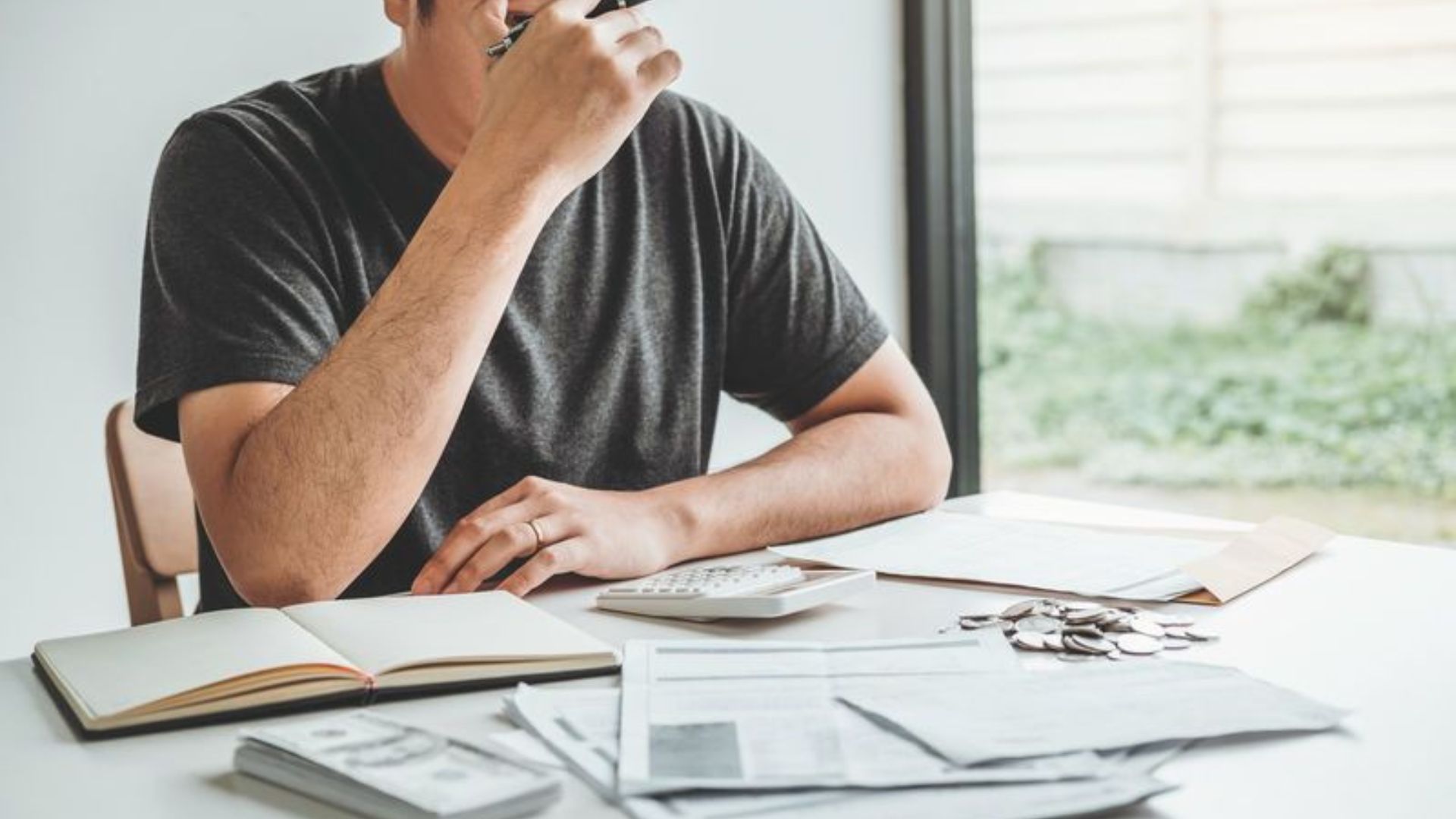What Are The Effects Of Bounced Checks On Your Credit?
What are the effects of bounced checks on your credit? Bounced checks, also known as insufficient funds or returned payments, can have detrimental consequences on your creditworthiness. When you repeatedly encounter the issue of bounced checks, it significantly impacts your credit score and financial reputation.

Morgan Barrons
Jan 25, 2024
Bounced checks can have far-reaching consequences, impacting both financial stability and creditworthiness. When checks fail to clear due to insufficient funds or errors, a cascade of effects follows, encompassing fees, legal repercussions, and potential damage to credit histories.
Understanding these effects is crucial for individuals navigating the complexities of personal finance, as it underscores the importance of financial responsibility and proactive measures to prevent bounced checks. In this article, we will be discussing what are the effects of bounced checks on your credit.
What Is A Bounced Check?
If the person who wrote the check needs more money in their account, the bank can handle the check. This is also called a "bounced check," "returned check," or "dishonored check." When a check bounces, the bank usually gives it back to the person who tried to deposit or cash it.
As a result, both parties may have to pay fees and fines. Both the person who wrote the check and the person who received it can have a lot of legal and financial problems because of bounced checks. That's why it's essential to know why they happen and how to stop them.
When a bank doesn't cash a check because there aren't enough funds in the account of the person writing the check, the check is called "bounced." This could happen for several reasons, including a mistake by the account holder, fraud, or an unexpected hold on the account. If someone receives a check that bounces, they may have to pay fees or fines because they need more cash.
What Are The Reasons For Check Bounce?
Insufficient Fund
Checks bounce when there aren't enough funds in the account to cover the amount written on the check. This happens when the account user tries to take out more money than is in the account, but the transaction fails.
Incomplete Data On The Check
When the bank handles the transaction, a bounce can happen if critical information like the date, payee, or amount is missing or filled out wrong on the check.
Overwriting
Information on a check that is hard to read or has been written over can be confusing and could cause the check to be refused. For this problem not to happen, writing must be clear and plain.
Mismatch Of Signature
If the signature on the check doesn't match the approved signature on file with the bank, the check may bounce. This makes the bank suspicious of the transaction's legitimacy.
Damaged Check
If there are tears, stains, or smudges on a check, it might be hard for automatic systems to read the information correctly, which could lead to a bounced check.
Mismatch Of The Amount
If the numbers and written amounts on the check don't match, it can make the bank suspicious, which can cause them to reject the transaction.
Forgotten Transactions
Sometimes, people need to remember to write a check or need more money in their account when the transaction is processed, which causes the check to bounce.
The Check Is Too Old
Banks usually have a time limit on when checks are suitable. If you try to pay with a check after this time, it might be called "stale-dated," which means it might not be clear.
The Check Is Fraudulent
If a bank finds suspicious behavior during the verification process on a fake, stolen, or otherwise fake check, the check will bounce. This protects account holders from possible scams.
What Happens When A Check Bounces?
When someone's bank account bounces a check, several things can happen. It leads to these six effects.
Nonsufficient Funds (NSF) Fee
Banks usually charge an NSF fee when a check doesn't clear because there aren't enough funds in the account. This fee is what the account holder gets for trying to make a trade when there isn't enough money in the account. The amount changes from bank to bank, and it makes things more expensive for the account holder.
Overdraft Fee
If the account has overdraft protection, there may be an overdraft fee in addition to the NSF fee. This fee is paid when the bank makes up the difference by lending money or transferring money from another account to cover the bounced check.
Outstanding Bills
When checks bounce, bills go unpaid, which can make it hard to keep your financial obligations. This can lead to late payment fees, service interruptions, and problems with your debtors.
Merchant Fees
Businesses that take bad checks may charge extra fees. Customers will be less likely to use sketchy payment methods, and the extra money will make up for the trouble the returned check caused.
Damaged Banking Record
A lost check shows up on the account holder's bank history. Banks look at this record when they look at a person's financial past, which could affect their ability to get new accounts or credit.
Closed Bank Accounts
There is a chance that the bank will close the account if checks bounce too often. This extreme step is taken to lower the risk of an account user not being able to handle their money correctly.
Negative Impact On Credit Score
Even though bouncing a check doesn't have a direct effect on credit scores, the things that happen afterward, like unpaid bills and closed accounts, can hurt a person's trustworthiness over time.
Legal Consequences
Checks that bounce more than once could sometimes lead to legal action, such as civil suits or criminal charges, based on the situation. The legal implications of the bounced check are worse than the financial and personal ones.
Loss Of Reputation
Bouncing checks can hurt your image with other people. When trust in money issues is broken, it can affect both personal and professional relationships.
Negative Banking History
A person's relationship with financial institutions is hurt by bounced checks, which add to a negative banking past. When you ask for loans or other financial services in the future, this history may be taken into account.
How To Handle A Bounced Check?
If you bounce a check, you should call your bank right away to explain what happened and see if there are any fees. Once that's done, you'll need to pay the amount you owe as soon as possible to avoid more problems.
Pay the person who wrote the check and let them know if the check bounces. If you want to know everything, you should also call your bank and ask if you will be charged any fees.
If you want to get the money back, you should talk to the person who wrote the check. If this problem keeps happening or the amount gets too big, consider looking into your legal choices.
In that case, send a written claim for the amount that is owed, along with any fees that were charged because the check bounced. Keep copies of everything you write. If the issuer still won't pay and the amount is less than the small claims court limit in the right place, a small claims case can be brought.
Preventing Bounced Checks
You might not be able to fix a check that has already bounced, but you can make sure it doesn't happen again. You can avoid getting a check when you don't have any money.
Balance Your Account
Check your bank accounts and records often to make sure they match up. Keep accurate records of all activities, deposits, and withdrawals.
This proactive method helps you find problems early on, which lowers the risk of checks being returned for lack of funds.
Keep A Cushion
Keep some extra money in your account in case you have to pay for something unexpected or make a mistake with your spending. A financial cushion is like a safety net; it keeps you from going overdrawn and paying fees for checks that don't clear.
Watch Your Balance
Keep an eye on your account balance, especially when you're doing a lot of activities at once. Keeping an eye on your balance helps you make intelligent choices about your money and keeps you from having to deal with the hassle and fees that come with bounced checks.
Consider Overdraft Protection
Check out what overdraft protection choices your bank has to offer. This service can connect your savings account, credit card, or line of credit to your checking account.
This gives you a backup source of funds in case your checking account doesn't have enough money and stops checks from being returned.
Pay With A Debit Card
Choose ways to pay, like bank cards that take money out of your account right away. When you use electronic transactions instead of checks, your account balance is updated in real time.
This makes it less likely that you will accidentally overspend and cause checks to bounce. This way encourages better accountability and management of money.
Dealing With Bounced Checks
Contacting The Check Writer
When someone receives a bad check, they usually call the person who wrote the check to let them know what happened and ask for payment in another way, like cash or a cashier's check.
A lot of the time, the person who wrote the check might not even know that it bounced, and they might be ready to fix the problem right away to avoid any more problems.
Bank's Role In Handling Bounced Checks
When a check bounces, the bank that took it in to deposit or cash it will usually send it back to the person who was supposed to receive it, along with a note stating why the check was returned.
The receiver's bank may also charge a returned check fee. The recipient needs to know what their bank's rules are about bounced checks and any fees or penalties that come with them.
Repercussions For The Check Writer
If someone bounces a check, they might have to pay bank fees, have their credit score go down, or even be charged with a crime.
To avoid these harmful outcomes, people who write checks should quickly deal with any lost checks by making the payment and working with their bank to fix any problems that may have caused the problem in the first place.
Moving Forward With Financial Literacy And Responsibility
As we wrap up our talk about bounced checks and unpaid bills, it's time to think about what we learned and how we can improve our financial knowledge and responsibility going forward.
To avoid financial problems and achieve long-term financial stability, it is essential to build a strong base of financial information and skills. That being said, let's look at some of the most important things we can do to become more financially responsible and intelligent.
Education
Educating people about money is one of the most important things we can do. This includes learning simple money skills like making a budget, saving, investing, and handling debt. Online classes, books, and personal finance blogs are just a few of the things that can help us learn more about money.
Budgeting
Making a budget is an essential step toward being responsible with your money. We can find places to cut back on spending and save more money by keeping track of our income and costs. For this reason, we might not have to use credit cards or bounced checks to pay for things.
Debt Management
There are steps we need to take to handle our debts properly if we have any. This could mean talking to your creditors about making a payment plan or getting help from a credit counseling service. We should only take on what we can handle and should pay off our current debts on time.
Building Savings
Setting aside money for emergencies is a smart way to handle your money. This can keep us from having to use credit or write bad checks when we need to pay for something unexpected. We can build up a savings cushion that will give us more financial security by putting away a small amount of our monthly income.
Seeking Professional Help
A financial expert or credit counselor can help us if we are having trouble with money or being responsible. These experts can give us personalized advice and direction that can help us make more intelligent choices about our money and stay away from common mistakes.
Frequently Asked Questions
How Does A Bounced Check Affect Credit?
While bounced checks don't directly affect your credit score, unresolved debts sent to collections can harm your credit.
What Is The Effect Of Bounced Checks?
Bounced checks result in fees, legal consequences, and damage to your financial reputation but don't impact your credit score directly.
What Happens To Me If A Check Bounces?
Bounced checks incur bank fees, harm relationships, and may lead to legal action if not promptly addressed.
What Happens If A Check Is Returned For Insufficient Funds?
A returned check due to insufficient funds triggers overdraft fees, penalties, and potential legal actions, underscoring the need for a positive account balance.
Conclusion
What are the effects of bounced checks on your credit? Bounced checks can have significant repercussions on your credit score and financial standing. When checks are returned due to insufficient funds, it triggers a chain reaction of negative consequences.
Navigating the aftermath of bounced checks involves addressing fees, potential legal actions, and the enduring impact on one's credit history.
To mitigate these effects, fostering financial literacy, embracing responsible money management practices, and seeking professional guidance emerge as pivotal strategies. By proactively understanding and addressing the implications of bounced checks, individuals can safeguard their financial reputation and cultivate a path toward sustained financial well-being.




